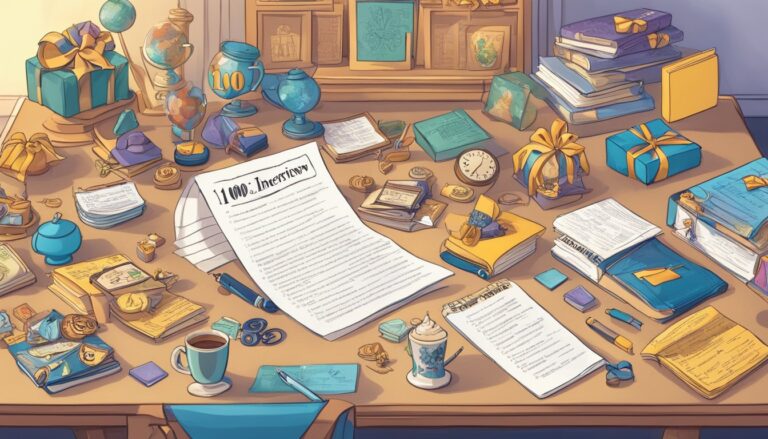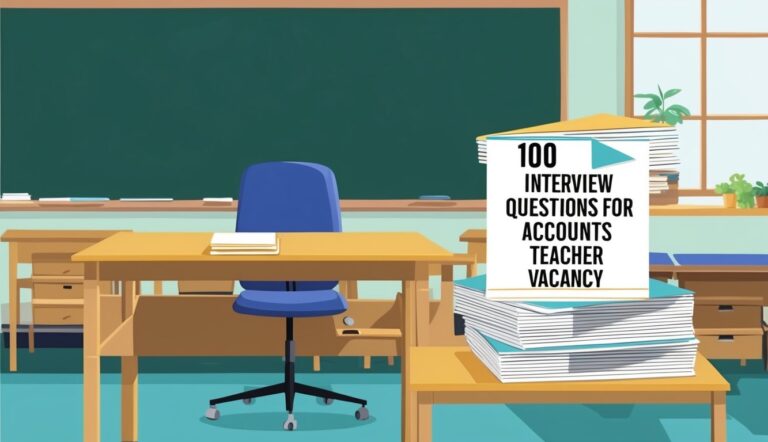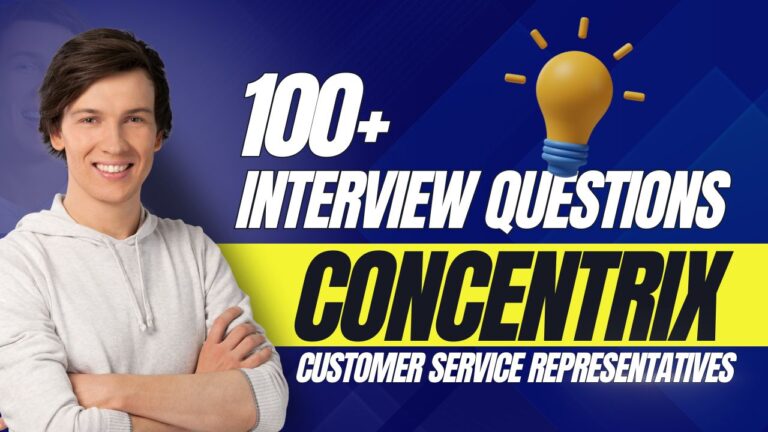60 Common Job Interview Questions: Essential Prep Guide for Success
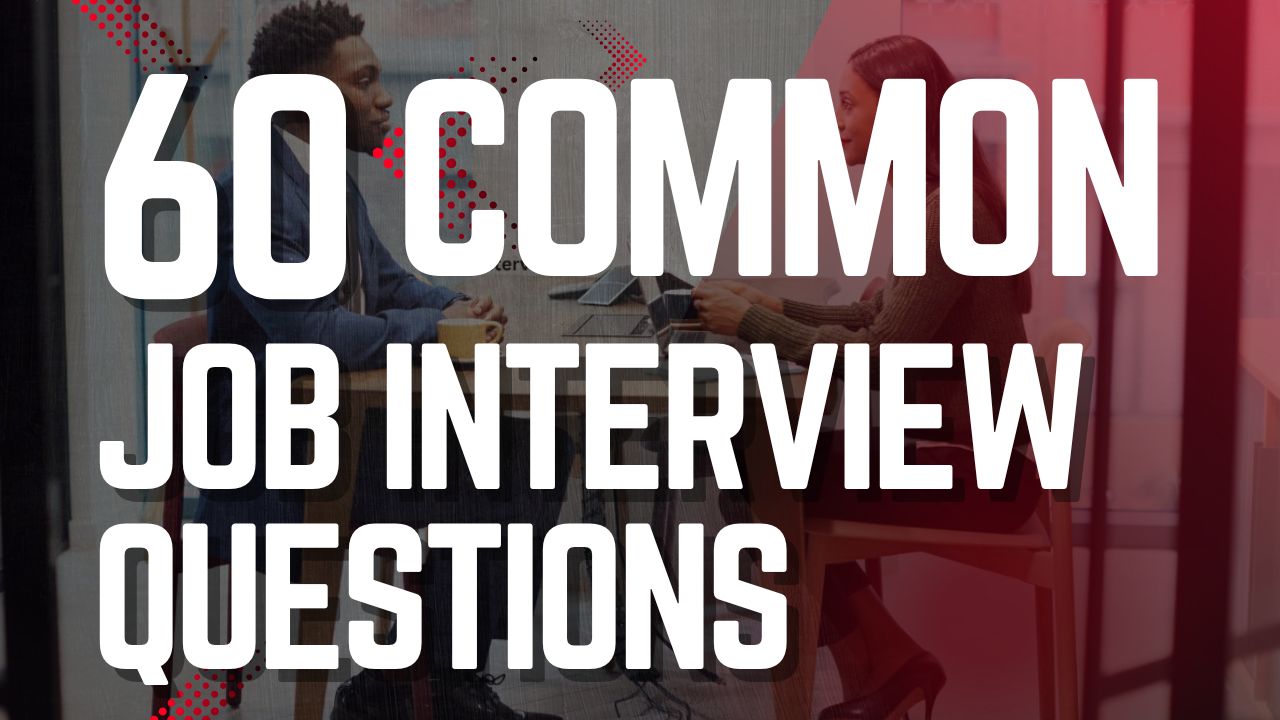
Are you preparing for a job interview and feeling overwhelmed by the questions you might face? Many candidates experience this, and it’s completely normal.
Interviewers often have a set of common questions they use to assess potential employees.

You’ll likely encounter a variety of questions that explore different aspects of your personality and work experience. They can include inquiries about your strengths, weaknesses, and past job roles.
By understanding what interviewers are looking for, you can tailor your responses to highlight your unique skills and experiences.
Practicing your responses to these common interview questions can help you feel more at ease during the actual interview. This preparation not only helps you articulate your thoughts but also shows potential employers that you are serious about the role.
Let’s think about it.
- Understanding the Interview Process: Common Job Interview Questions
- Personal Profile and Self-Description
- 60 Common Job Interview Questions
- Work Experience and Skills: 60 Common Job Interview Questions
- Interpersonal Skills and Fit
- Career Planning and Development
- Personal Attributes and Habits
- Practical Considerations
- Final Thoughts
- Frequently Asked Questions: 60 Common Job Interview Questions
Understanding the Interview Process: Common Job Interview Questions

Navigating Job interviews requires preparation. You need to know the types of questions you might face, learn about the company, understand the job description, and have strong application materials ready.
Focus on what makes you a great fit for the role.
Types of Interview Questions
During interviews, expect a mix of question types.
Behavioral interview questions ask about past actions to predict future behavior. Situational interview questions explore how you might handle situations.
To succeed, practice your answers and focus on clearly explaining your relevant experiences. This will help demonstrate your understanding and skills to the interviewer.
Researching the Company
Researching the company is crucial. Learn about company culture by exploring their website, reading recent news articles, and checking their social media pages. Look into the company’s competitors to understand industry context.
Analyzing the Job Description
The job description is your guide to understanding the position. It lists required skills, responsibilities, and desired educational background. Analyze it to tailor your responses in the interview.
Focus on the keywords that match your expertise. This can include specific tasks listed under job responsibilities.
Understanding the job description helps you prepare answers that highlight why you are a suitable candidate and how your experiences fit the role.
Preparing Your Resume and Cover Letter
Your resume and cover letter should be polished and tailored to the job you’re applying for.
Highlight skills, achievements, and experiences that match the job description. Include measurable achievements to convey your impact.
Your cover letter should explain your connection to the company and why you’re interested in the role. Use specific examples to illustrate your strengths.
Ensure these documents are clear and error-free. A strong resume and cover letter can make you stand out even before the interview, increasing your chances of success.
Personal Profile and Self-Description

In Interview, You should focus on sharing your background, motivations, key achievements, and career aspirations in a clear and concise manner.
Tell Me About Yourself
When responding to “Tell me about yourself,” aim to share relevant personal details. Start with a brief introduction about where you’re from. Mention your hobbies that relate to your professional interests.
Highlight your motivations and what drives you in your career.
Use this opportunity to express why you think the job aligns with your dream role.
Professional Achievements and Accomplishments
Highlighting your professional achievements is crucial. Share specific instances where you went above and beyond in your previous roles. Use bullet points to list major accomplishments.
- Achievement 1: Describe a significant project you completed.
- Achievement 2: Share awards or recognitions you received.
- Achievement 3: Mention any improvements you implemented that had a lasting impact.
Be sure to relate these accomplishments to skills that are relevant to the job you are applying for. This shows a direct correlation between your past successes and your potential contributions to the company.
Career Goals and Objectives
Discussing your career goals provides insight into your ambitions. Start with your short-term goals, emphasizing immediate aspirations like gaining specific skills or experiences. Then, transition into your long-term goals.
Explain how this role aligns with your professional goals and how it is a step toward your future objectives.
60 Common Job Interview Questions
Here’s a list of 60 challenging job interview questions that can help you prepare for high-stakes interviews:
- Describe a time when you had to make a decision without all the information you needed.
- How do you handle situations where you disagree with your boss?
- Tell me about a time you took a risk in your career. What was the outcome?
- Explain a complex project you managed and the steps you took to ensure its success.
- How do you prioritize tasks when you have multiple deadlines?
- Describe a situation where you had to influence someone to accept your viewpoint.
- What strategies do you use to motivate a team that is underperforming?
- Tell me about a time when you had to deliver difficult news to a colleague or client.
- How do you approach learning new skills or technologies?
- Describe a time when you had to navigate a significant organizational change.
- How do you ensure your work aligns with the overall goals of the organization?
- Tell me about a time you had to manage conflicting priorities.
- How do you assess the effectiveness of your team’s performance?
- Describe a situation where you had to deal with a difficult stakeholder.
- What methods do you use to gather and incorporate feedback into your work?
- Explain how you handle tight deadlines while maintaining quality.
- Tell me about a time when you had to adapt your communication style to different audiences.
- How do you approach ethical dilemmas in the workplace?
- Describe a time when you had to lead a team through a crisis.
- What do you consider your biggest professional failure, and what did you learn from it?
- How do you balance short-term demands with long-term strategic goals?
- Describe a time when you had to mentor or coach someone. What was the outcome?
- How do you handle ambiguity in your work?
- Tell me about a time when you had to change your approach to achieve a goal.
- What role does data play in your decision-making process?
- Describe how you would handle a project that is falling behind schedule.
- How do you ensure stakeholder alignment on a project?
- Tell me about a time when you had to negotiate a favorable outcome for your team.
- How do you approach setting and managing expectations with your team?
- Describe a time when you had to work with a team that was not functioning well.
- What is your approach to handling constructive criticism?
- How do you stay current with industry trends and advancements?
- Describe a complex problem you solved and the thought process behind it.
- How do you measure success in your role?
- Tell me about a time when you had to advocate for a project or idea.
- How do you approach conflict resolution among team members?
- Describe a situation where you had to make a decision that was unpopular but necessary.
- How do you ensure diversity and inclusion in your team?
- Tell me about a time when you had to pivot your strategy mid-project.
- How do you handle situations where you have to deliver poor performance feedback?
- Describe a time when you had to balance competing interests from different stakeholders.
- What is your approach to risk management in projects?
- Tell me about a time you led a project that failed. What did you learn?
- How do you encourage innovation within your team?
- Describe a time when you had to implement a new process or system.
- How do you handle burnout, both for yourself and your team?
- Tell me about a time when you had to collaborate with a cross-functional team.
- How do you assess your team’s strengths and weaknesses?
- Describe a situation where you had to make a trade-off between quality and speed.
- How do you maintain your team’s morale during challenging times?
- Tell me about a time when you had to challenge the status quo.
- How do you approach building relationships with key stakeholders?
- Describe a time when you had to deliver a presentation to a skeptical audience.
- How do you ensure accountability within your team?
- Tell me about a time when you had to learn from a mistake.
- How do you approach succession planning within your team?
- Describe a time when you had to manage a project with limited resources.
- How do you foster a culture of continuous improvement?
- Tell me about a time when you identified a significant opportunity for your organization.
- How do you handle situations where team members are not meeting expectations?
Work Experience and Skills: 60 Common Job Interview Questions

When discussing work experience and skills in a job interview, it’s important to focus on solid examples. Highlight key achievements and strengths. Use specific stories to show how you went above and beyond in past roles.
Sharing Your Work History
When sharing your work history, be clear and concise about your past roles. Use a chronological order, starting with your most recent position. Mention job titles, company names, and dates of employment.
Provide a brief overview of your responsibilities in each role. Highlight any promotions or increased responsibilities to show career growth.
Use bullet points for clarity:
- Job Title, Company (Year-Year)
- Key duty one
- Key duty two
Focus on roles that are most relevant to the job you are applying for. This demonstrates that your past experience aligns with the new position.
Discussing Professional Skills
Discussing professional skills is about showcasing what you bring to the table. Identify your greatest strengths and how they’ve benefited past employers. Use real examples to back up your claims.
Consider using this structure when answering questions:
- Skill Name: Explain what it is.
- Example: Give a real-world example where you used this skill.
- Result: Describe the result achieved through this skill.
Be ready to discuss both soft skills, like communication, and hard skills, such as proficiency in software or technical abilities.
Describing Past Achievements
Describe past achievements by focusing on situations where you went above and beyond.
Identify a problem you faced, describe the task you undertook, the specific actions you implemented, and the results. This method provides a clear narrative that’s easy to follow.
Quantify your achievements, using numbers or percentages whenever possible. For example, “increased sales by 20% in six months.”
Interpersonal Skills and Fit

In job interviews, assessing interpersonal skills and fit can be crucial. These skills determine how well you work with others, manage challenges, and engage with customers. Understanding these aspects helps interviewers see if you match the company’s culture.
Team Players and Collaboration
Being a team player means working well with others towards a common goal. Employers value collaborative skills because they lead to better teamwork and success.
In interviews, you might face questions about past group projects, how you contribute in teams, and any past mentors who have influenced your work style.
Leadership Style and Potential
Even if you’re not applying for a leadership position, your potential to lead is important. You’ll likely be asked about your leadership style and past leadership experiences.
Explain times you’ve taken charge, mentored others, or handled a difficult situation.
Describe how you motivate a team, make decisions, and maintain focus under pressure.
If you have experience balancing leadership and teamwork, provide specific examples that highlight these skills.
Handling Conflict and Pressure
Handling conflict and pressure is often tested in interviews. Employers want to see how you manage stress and resolve disagreements. They may ask about times when you faced challenges or disagreements at work, and your approach to solving them.
Share examples where you kept calm under pressure, especially during conflicts with teams or difficult situations.
Explain your strategies for problem-solving and how you ensure a positive work environment despite conflicts.
Customer Service Orientation
A focus on customer service is essential in many roles. You might be asked how you handle customer interactions or feedback.
Interviewers look for candidates who prioritize meeting customer needs effectively.
Discuss your work style when dealing with people and how it improves customer satisfaction by staying calm and attentive, even during stressful interactions.
Career Planning and Development
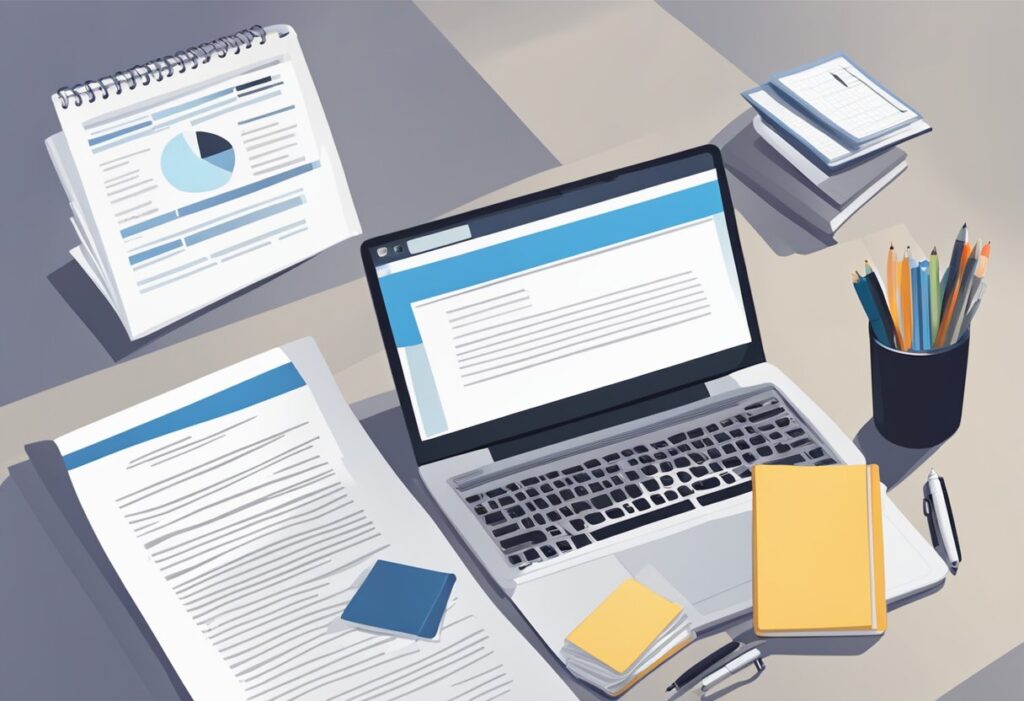
Career planning and development involve understanding how to advance in your current job and the steps needed for long-term success. It includes setting goals for career growth and engaging in continual learning.
Discussing Career Progression
When talking about career progression, highlight your educational background and how it supports your goals. Mention specific achievements and roles that demonstrate your growth. Your ability to navigate management style changes can show adaptability.
Talk about times you overcame mistakes or failure and learned from them. This shows resilience and a commitment to improvement.
Share how you tackle challenges and what steps you take to ensure your career keeps moving forward. Tailor your responses to reflect a clear path of development.
Continual Learning and Improvement
Continual learning is essential for staying relevant.
Emphasize your dedication to improving skills through courses or certifications. This shows initiative and eagerness to adapt. Your learning path should align with your career goals.
Discuss how feedback from colleagues or mentors helps you grow.
This demonstrates a proactive approach to career growth. An ongoing commitment to learning ensures you can meet the changing demands of your field.
Personal Attributes and Habits
Your personal qualities can impact job performance. Understanding your strengths, weaknesses, and motivations helps you align your skills with job demands. This understanding guides your professional growth and satisfaction.
Strengths and Weaknesses
Knowing your strengths is crucial. It helps you express why you’re a valuable asset. Are you detail-oriented, adaptable, or a great team player? Highlight these traits with specific examples. They should match the job description and work environment.
On the other side, all of us have weaknesses. Understanding them shows self-awareness.
Choose weaknesses that you’re actively working to improve. For instance, if time management is a challenge, discuss the steps you are taking to get better at it. This showcases growth and willingness to develop.
Personal Motivation and Goals
Personal motivation drives you toward success. It’s important to identify what inspires you.
Is it career advancement, personal growth, or a specific field of interest? Align these motivations with the job you’re applying for, describing how the role helps achieve your goals.
Discussing your dream job can also reveal what you value most. Be open about long-term professional ambitions.
Practical Considerations
When preparing for a job interview, think about salary discussions and how to negotiate effectively. Knowing your worth and being ready to discuss expectations can help you.
Final Thoughts
Preparing for a job interview can be a big task, but being ready is important.
You might be asked, “How did you hear about this position?” Have a clear answer ready.
It could be through a job board, a friend, or the company’s website. Knowing this can show your interest in their company.
Research the industry you are interviewing for. Understand the key trends and challenges.
This will help you relate your skills to the company’s needs.
Practice common interview questions so you know what to say.
It helps to have examples from your past work ready to share.
Be ready to explain how you handled challenges and achieved goals.
Remember that the interview is also a chance for you to learn more about the company and see if it matches your career goals. Good luck!
Frequently Asked Questions: 60 Common Job Interview Questions

Preparing for a job interview can be easier if you know what to expect. These common questions can help you showcase your skills, goals, and accomplishments confidently.
Can you tell me a little about yourself?
This question is often an icebreaker.
Focus on your background, key experiences, and what makes you a good fit for the role.
Keep it concise and relevant to the job.
Where do you see yourself in five years?
Interviewers want to know your future aspirations and if they align with the company’s goals.
Share your career ambitions and how you plan to achieve them, including steps you’ll take to grow.
What are your greatest professional strengths?
Identify qualities or skills that are most relevant to the job.
Provide examples of how these strengths have been beneficial in your previous roles to demonstrate your capability.
What is your greatest professional achievement?
Choose an example that highlights your skills and contributions.
Explain the situation, the actions you took, and the positive outcome, showing the impact of your work.
Why do you want to work at this company?
Research the company and mention specific reasons why it appeals to you.
Talk about its values, culture, or recent achievements that align with your goals and values.
Can you describe a challenge you’ve faced at work and how you dealt with it?
Think of a challenging situation you managed well.
Explain the problem, your approach, and the successful resolution, highlighting your problem-solving and critical thinking skills.
All the Best !

